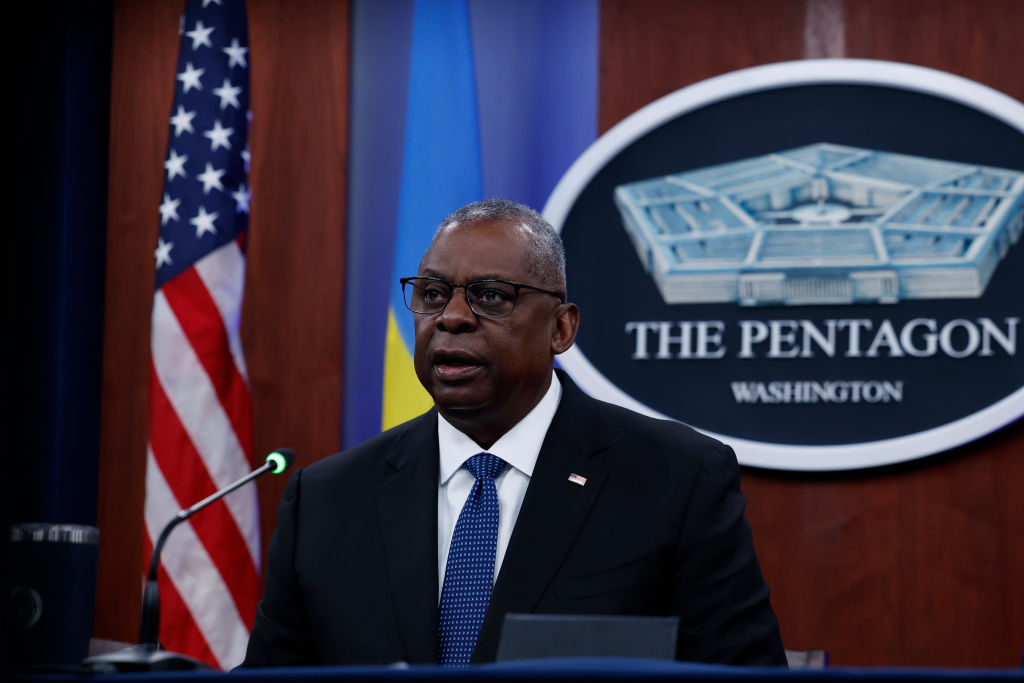The long-sought mastermind of Hamas' Oct. 7, 2023, terror attacks has been killed in an Israeli military operation in the Gaza Strip, Israel said Thursday.
“I stand before you today to inform you that Yahya Sinwar has been eliminated,” Israeli Prime Minister Benjamin Netanyahu said in a television statement.
The Israel Defense Forces said Sinwar was killed Wednesday by soldiers in southern Gaza. Hamas has yet to confirm his death.
Yahya Sinwar was declared Hamas’ new political head in August following the assassination of Ismail Haniyeh. Sinwar's death will come as a significant blow to the militant group and its supporters — and as a major coup for Israel and its war in the Gaza Strip.
Get top local stories in DFW delivered to you every morning. >Sign up for NBC DFW's News Headlines newsletter.
Before Sinwar’s death was announced, a senior Israeli official told NBC News that troops had identified him as being among three militants killed during a “heavy gun battle” in Gaza. But, they said, the operation had not been aimed specifically at killing Sinwar.
The IDF and the Shin Bet had noted in a joint statement earlier Thursday that there were “no signs of the presence of hostages in the area” of the building where Sinwar and two other militants were killed.
The IDF had vowed following the Oct. 7, 2023, attacks in which some 1,200 people were killed and around 250 taken hostage, to capture Sinwar “dead or alive.”
Sinwar had been in charge of day-to-day governance in Gaza prior to Oct. 7 and was named Hamas’ new political leader after Haniyeh was killed in an airstrike on his residence in Tehran in July.
Haniyeh was attending the inauguration ceremony of Iranian President Masoud Pezeshkian. Israel, which typically remains silent on targeted assassinations, is believed to have carried out the attack.
Sinwar, who was born in a Gaza refugee camp in the early 1960s, joined Hamas after its founding in 1987 and helped establish its internal security force a year later, according to a profile of him by the European Council on Foreign Relations think tank.
He was sentenced to life in prison in 1988 for plotting to kill two Israeli soldiers, as well as the killing of four Palestinians he suspected of collaborating with Israel. He was released years later in 2011 as one of more than 1,000 Palestinian prisoners freed in exchange for Gilad Shalit, an Israeli soldier who had been held by Hamas for more than five years.
Sinwar quickly rose up through the ranks of the militant group and was elevated to its helm in a secret ballot in 2017.
The already elusive Hamas leader went into hiding after the Oct. 7 attacks and was believed to be concealed within the elaborate tunnel system used by Hamas militants in Gaza, according to Israeli officials.
In a statement Thursday, the Hostages and Missing Families Forum Headquarters, which represents the families of hostages held by Hamas, said it welcomed the possibility of Sinwar’s killing and urged the leveraging of “this major achievement to secure hostages’ return.”
Of the roughly 250 people taken hostage into Gaza during the Oct. 7 attacks, 154 have been freed, with 101 hostages still held in Gaza, including 33 believed dead, according to Israeli officials.
“I am hopeful that his personal reign of terror has ended,” Thomas Hand, the father of Emily Hand, who was released by Hamas as part of a temporary cease-fire deal in November, told NBC News prior to Israel's announcement confirming Sinwar's death.
“I hope that this heavy blow to their command structure will help bring an end to this terrible war,” he said. “Perhaps they will feel weakened enough to come to the table and finally make a serious deal to end the war and give us back our poor hostages after more than a YEAR in brutal captivity.”
Foreign Minister Israel Katz said Sinwar's death would create “an opportunity for the immediate release of the hostages and a potential change that could lead to a new reality in Gaza— without Hamas and without Iranian control."
"This is significant for Israel’s government, for example, at the very least in terms of it being a political win, with the commemoration of the Oct. 7 attack only having just passed," Mahdi Ghuloom, a regional security analyst at Le Beck International, told NBC News.
While Israelis would welcome the news of Sinwar's death, it did not fundamentally change the situation for hostages being held in Gaza, according to Ronni Shaked, a research fellow at the Harry S. Truman Institute at the Hebrew University of Jerusalem
“It’s a very happy moment for every Israeli. But I don’t think it’s going to change the situation for the Israelis who have been kidnapped," he said. "Israel is not going to find some new way to bring them back now because it’s not just in the hands of Sinwar."
Rashid Khalidi, professor emeritus of modern Arab studies at Columbia University and author of "The Hundred Years’ War on Palestine,” agreed, saying Sinwar's killing represented a "Pyrrhic victory."
“The killing of Sinwar, if confirmed, will not minimize resistance to Israel’s occupations," he said before the news was announced.
More than 42,400 people have been killed in Gaza, health officials there say, in the year since Israel launched its offensive after the attacks.
This story first appeared on NBCNews.com. More from NBC News:



